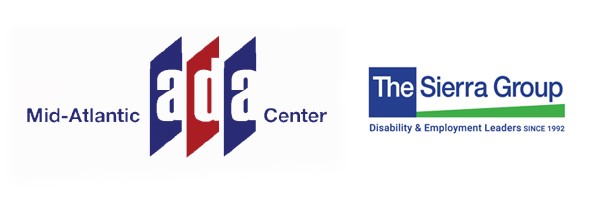DHS Issues Guidance for Individuals Needing FBI Background Checks Under CPSL During COVID-19 Emergency
DHS Reassures Pennsylvanians that Help is Available, Provides Update on Public Assistance Data Trends
DOH & DHS Provider COVID-19 Testing Survey Request
Please see this letter from the Secretary of Health, regarding the testing strategy for licensed residential programs. In the letter there is a link to an LTCF testing survey to complete, which DHS is coordinating with each licensed residential program in order to understand the current testing environment. Also included are links to the Governor’s testing strategy. Please complete the survey by Tuesday May 26, 2020
RCPA will continue to work with our stakeholders on the implementation needs of Governor Wolf’s “3 Pillar Plan” for our members. The Department of Heath and DHS look to have the completed survey no later than Tuesday, May 26.
Contact PA General Assembly Regarding Impact of Unemployment Compensation on Nonprofits in PA
RCPA has been collaborating with the Pennsylvania Association for Non-Profit Organizations (PANO) on a few issues over the past several weeks. One of those issues is how unemployment compensation is affecting RCPA members and other nonprofits. RCPA and PANO staff have spoken and are working together on this issue. To help nonprofit organizations around the unemployment compensation issue, PANO has created the following outline of what nonprofits can do to assist RCPA and PANO in this endeavor.
What You Can Do
- Read the Unemployment Compensation Case for PA Nonprofits.
- If you did not pay the solvency fee, consider calculating what your solvency fee would be (see What You Should Know section of this summary for the formula) and also what your unemployment compensation would be at 100% and 50% for the first six weeks of your COVID-19 impact – so the numbers are comparable to those in this case.
- Reach out to members of your Pennsylvania delegation in both the Senate and the House with this message:
- Extend the period of benefit for reimbursable employers to any employment claims resulting from COVID-19 – including and beyond the weeks of the COVID-19 disaster emergency declared by the governor.
- Open a period of 90–120 days for nonprofits who have not paid the solvency fee to pay the solvency fee, which would then allow all nonprofits to be held harmless for 100% of unemployment compensation claims resulting from COVID-19.
- And use your own numbers calculated in Step 2 to make your individual case to your representatives.
PANO and RCPA are interested in collecting more data, so please consider sharing your data with Jack Phillips.
Property Tax/Rent Rebates Arriving Early to Help Seniors, Others During COVID-19 Pandemic
Inclusion Confusion: What Is the SELF-ID Form and Why Is It Important?
Mid-ATLANTIC ADA Center Features
Janet D. Fiore in Webinar on SELF-ID
Thursday, May 21, 2020
CEUs AVAILABLE
Learning points include:
- The new SELF-ID Form
- The Difference between Self-ID and Self-Disclosure
- How people FEEL about discussing disability
- The varied needs/opinions of Business, Individuals and VR professionals
- Tips on How Professionals can work together to drive up the use of the Self-ID form
This Webinar is timely as the new SELF-ID form has just been released!
Webinar is free to attend, a small fee will be required for a CEU certificate.
Register:
https://www.adainfo.org/training/self-ID-form
“This Webinar will debunk the mystery about when and how to discuss disability in the workplace.”
– Janet D. Fiore, CEO of The Sierra Group
For additional professional development training on unconscious bias, disability inclusion and etiquette visit www.thesierragroup.com for all of your Disability and Inclusion needs.
800-973-7687
TheSierraGroup.com
OCYF Bulletin Updated PA Safe Haven Act 201
The Office of Children, Youth and Families (OCYF) has released Bulletin 3490-20-01, “Pennsylvania Safe Haven Act 201 of 2002 ‘The Newborn Protection Act’ as amended by Act 91 of 2014 and Act 68 of 2017.” The purpose of this bulletin is to transmit requirements and guidance related to legislative changes to the Newborn Protection Act as amended by Act 91 of 2014 and Act 68 of 2017. These changes include allowing police officers at police stations and emergency services providers on the grounds of an entity employing emergency services providers to accept newborns, as well as an optional provision for Safe Haven locations to provide an incubator for the acceptance of a newborn. This bulletin rescinds and replaces OCYF Bulletin 3490-11-01, Implementation of Act 201 of 2002, previously released in July 2011. Questions regarding this bulletin should be directed to Ms. Teresa Musser, Human Service Program Specialist in OCYF’s Bureau of Policy, Program and Operations as outlined on the first page of the bulletin.
If you have further questions, please contact RCPA Children’s Division Director Jim Sharp.
DOH Policy Regarding Hospital Visitation Procedures
The Department of Health (Department) has received questions and requests for guidance from hospitals, health systems, and their representatives on their responses to Coronavirus Disease-2019 (COVID-19) and whether measures being implemented or contemplated are compliant with the statutory and regulatory requirements under the jurisdiction of the Department.
In a document released May 12, 2020, the Department’s guidance includes the following language regarding visitor policies:
The Department strongly encourages that a hospital’s visitor policy allow for a patient support person at the patient’s bedside for patients in labor and delivery; pediatric patients; and patients for whom the hospital determines a support person is essential to the care of the patient, including patients with intellectual and/or developmental disabilities and patients with cognitive impairments such as dementia. Hospitals do not need the Department’s approval to implement a new visitor policy in response to COVID-19.
RCPA Member Telehealth Survey
As part of RPCA’s ongoing effort with members’ and stakeholders’ support of the telehealth expansion and the building of a sustainable service platform, we are asking members to complete this telehealth survey. Because many organizations provide telehealth across multiple service areas (i.e. Children’s, D&A, Adult Outpatient, etc.); we respectfully request that one survey be completed for each of those program areas in which you are providing telehealth. The data we collect will be instrumental in our collective efforts with DHS, managed care organizations, and other critical decision makers to ensure telehealth has a place in your continuum of care. Thank you.



















